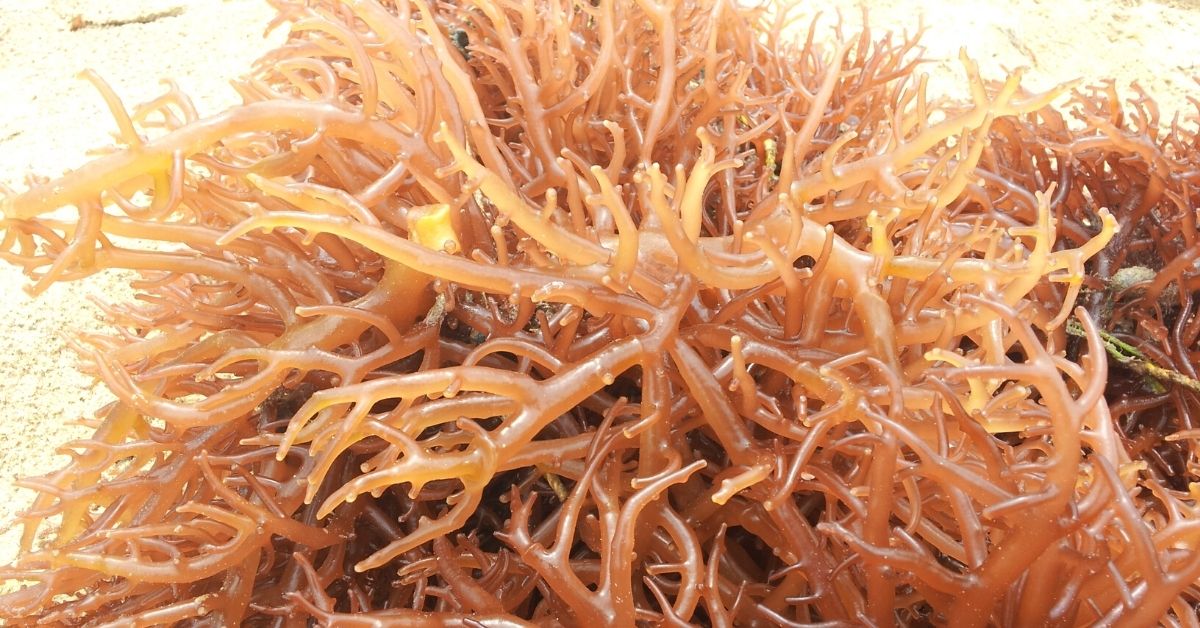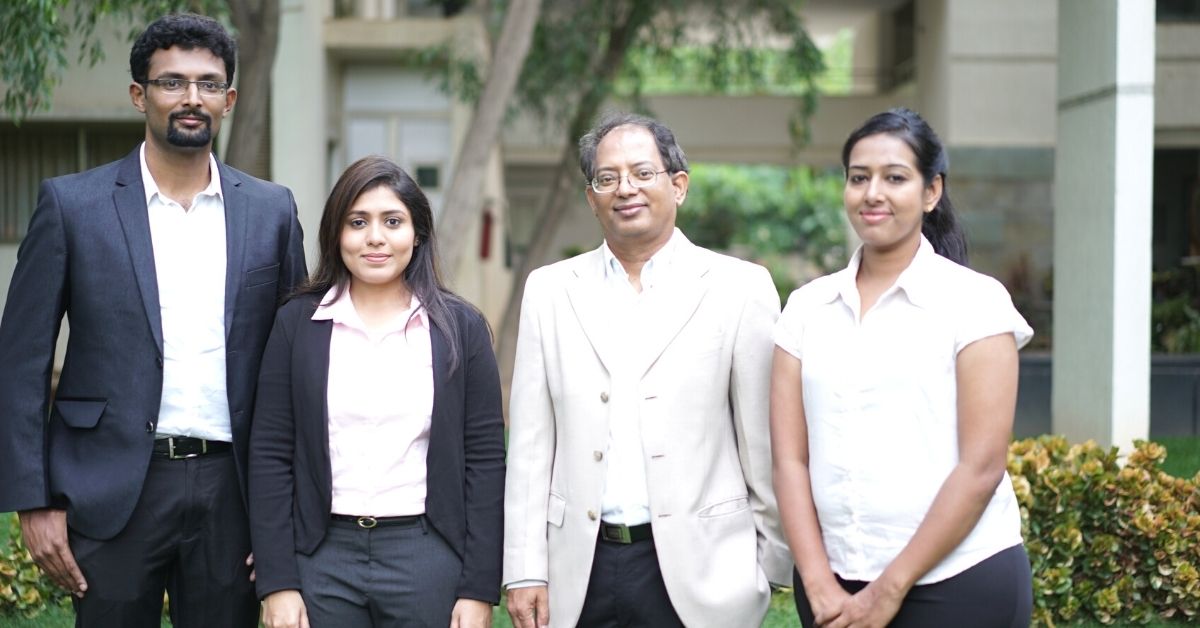Off the coast of Tamil Nadu, a series of seaweed plantations lie in the Bay of Bengal, bouncing on the sea waves. At a distance floats a boat that harvests the seaweed with a tractor-like mechanism that simultaneously resows the plant.
The harvested seaweed is carried to the coast and transported to a factory where it is processed to make products that increase the growth of agricultural plants on land. It also protects these plants from viruses and converts the seaweed into biofuel.
Farming on the land is common, but a Bengaluru-based startup Sea6 Energy has ventured into uncharted waters by farming in the sea. It recently bagged $9 million in funding from a Netherland-based company, Aqua-Spark. However, it would be interesting to note that the startup formed in 2010 started as a project for an academic competition.
Sowmya Balendiran, the Chief Business Officer at the company, says, in 2009, while studying biotechnology with her classmates at IIT-Madras, an opportunity to participate in the international competition came to them.
Little did they know that it would lead them to build innovative products that would benefit farmers.
To Farm Seaweed

“We wanted to participate in iGEM, a global synthetic biology competition, held at the Massachusetts Institute of Technology (MIT), USA. It is one of the most challenging student competitions, and we needed funds of Rs 1 lakh to come up with a genetically engineered solution that could solve real-world problems,” she tells The Better India.
Sowmya says that along with her teammates, Sri Sailaja Nori and Nelson Vadasseri, they became the first and only Indian team participating in the competition. Financial help came from Shrikumar Suryanarayan, their mentor and professor at the institute.
Their virtual presentation earned them a silver medal.
Motivated by their success, the team spent their final year of graduation making biofuels from microalgae after Shrikumar suggested conceiving an environment-friendly solution that could bring an alternative to crude oil.
When Sowmya and her teammates completed their graduation some started to look for job opportunities while others were looking to pursue their PhD.
“Shrikumar suggested that we develop our ideas further and find a solution to the fuel crisis by bringing an alternative for crude oil,” she adds.
His motivation led the team to form a startup that creates biofuel from seaweed and other products. The company claims to be carbon positive and causes no harm to the environment throughout its entire operations.
Coming from their academic background in biotechnology, they knew that microalgae, found in freshwater and oceans, held the potential to be used as biofuel. “But we were also aware that the scalability and economic feasibility of the product were impractical. However, a few days later, one of us came across an article on seaweed, scientifically known as macroalgae, cultivated at the coast of Tamil Nadu. It was the answer to all our problems as it overcame all the technical and economic challenges. It was then that we decided to embark on the journey of setting up a company,” Sowmya says.

Seaweed can sequester carbon like microalgae much faster than trees and grows up to 2 feet a day. Moreover, it does not face the threats of drought or fire. Its usage is wide — from stabilisers in toothpaste, ice cream and other products like fish and human food too.
So on 26 July 2010, they incorporated the company with Shrikumar as the managing director and CEO, Sowmya as the chief business officer, Sailaja holding the position of the chief scientific officer and Nelson taking the role of the chief technology officer. The startup received its initial funding of Rs 8 crore from Kiran Mazumdar Shaw and Shrikumar.
After the initial four years, the team devised a process to convert seaweed into biofuel. “But there were multiple challenges. We could not solve the fuel issue by producing 200 litres of biofuel a day. Its quantities needed to be enormous. Moreover, only mass production would make the price competitive. To overcome the challenges, we would require at least one square kilometre seaweed farm on the sea, which we did not have,” Sowmya explains.
However, the company had to continue working, and generating revenue became crucial. A couple of years later, the team worked to produce a bio-stimulant named AgroGain, a chemical-free product made from seaweed extracts that enhances agriculture production up to 15 per cent.
In 2012-13, the company raised a Series A funding of Rs 35 crore from Tata Capital.
“Over the next four years, we scaled up its manufacturing and distribution in India, including countries like the USA, Vietnam, Indonesia and Sri Lanka,” she says.
The startup also created another innovative product — AG Fort, that helps prevent agricultural threats such as Papaya ringspot virus and tomato leaf curl virus, a common concern among farmers in India.
“Once infected, the virus can destroy the entire plantation. The medicine works as a vaccine and is given during the growth stages to prevent the virus affecting the crops by building immunity in plants,” Sowmya explains.
Eqqua Royal, another product is for aquaculture farmers that helps boost immunity among shrimps and increase their chances of survival through infections in the water, thus increasing the production.
Bagging the $9 Million Deal

Over the years, the company established its manufacturing plant in India and Indonesia, where it farms and produces products from seaweed. The company developed an innovative boat, SeaCombine, to harvest the seaweed. “The entire processes and lifecycle spent on making the products are carbon positive,” she says.
Sowmya adds the company is working to make bioplastic and packaging solutions.
However, they continue to face the challenges of producing biofuel on a large scale. “We are yet to achieve the target of harvesting seaweed in one square kilometre area and hope to achieve it in the coming years. The recent funding of $9 million from Aqua-Spark should be able to help us with the same,” she says.
Sowmya adds, “It is a Series B funding, and we were looking to raise funds. Since we could not find potential supporters in India who could put their faith in the innovative technology, we started looking for foreign players. We signed the deal with Aqua-Spark in June 2021 after we felt confident that our values of sustainability matched with the company.”
Sowmya says that such technology is often known to develop internationally. “Our success has proven that there is abundant talent in India that can bring sustainable solutions using the ocean, which remains a lesser-explored territory for all,” she adds.
Edited by Yoshita Rao
No comments:
Post a Comment